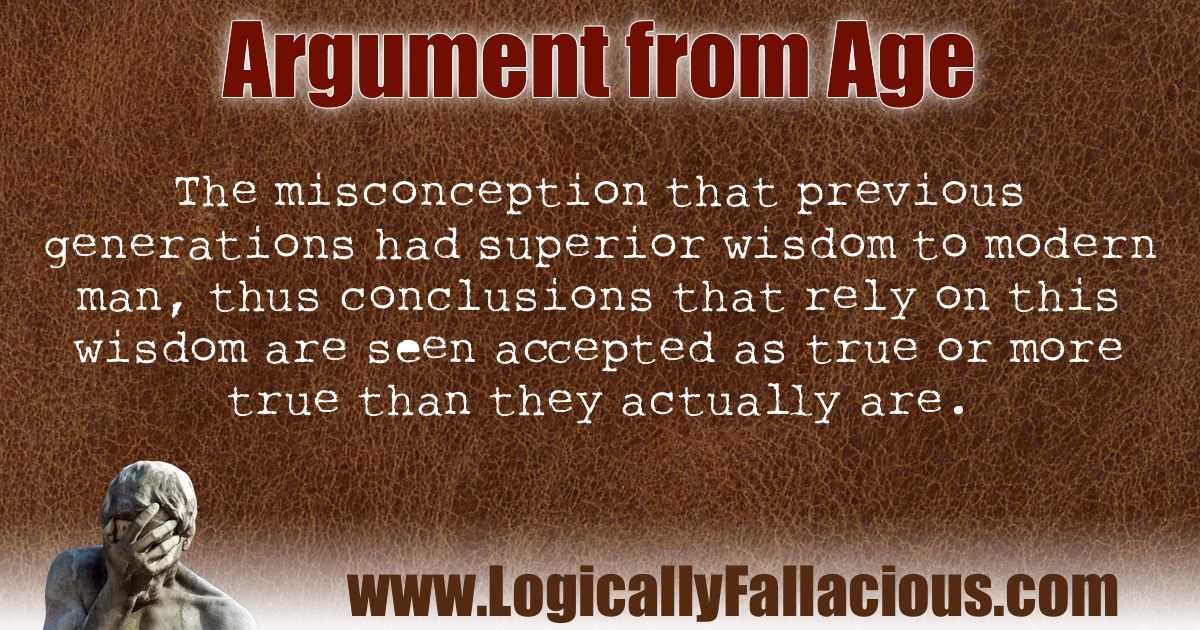(also known as: wisdom of the ancients)
Description: The misconception that previous generations had superior wisdom to modern man, thus conclusions that rely on this wisdom are seen accepted as true or more true than they actually are.
Logical Form:
Person 1 says that Y is true.
Person 1 was an ancient mystic.
Therefore, Y is true.
Example #1:
Swami Patooty wrote, back in the 6th century, “To know oneself, is to one day self know.” You don’t find pearls like that today!
Explanation: There are many sayings today that are just as ambiguous, obscure, and nonsensical as the ones carved in stone 1500 years ago -- the difference is perception. Especially with “aged wisdom”, we tend to read in meaning to ambiguity where none exists or where the author’s intended meaning is impossible to know.
Example #2:
My Grammy told me that to be healthy I should have bacon and eggs every morning for breakfast.
Explanation: It seems politically incorrect to suggest that older generations are not “wise,” but the fact is, wisdom is not necessarily a function of age. We have two generations of scientific knowledge that our grandparents did not have, and the world has changed quite a bit in the last two generations. While some advice may be timeless, other advice, such as the advice in the example, was based on the beliefs of the day and should be discarded like a container of chunky milk.
Exception: When the age is directly related to the truth of the claim as in, “Wine tastes better with age”.
Fun Fact: Even ancient Greeks said stupid things.

References:
This a logical fallacy frequently used on the Internet. No academic sources could be found.